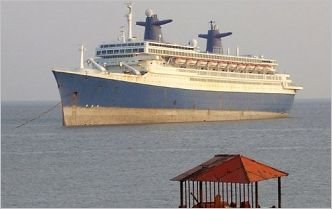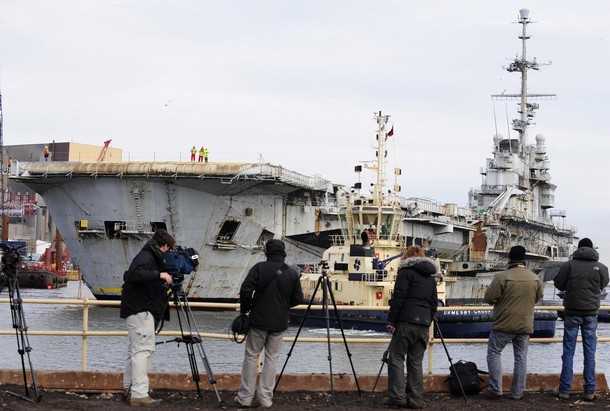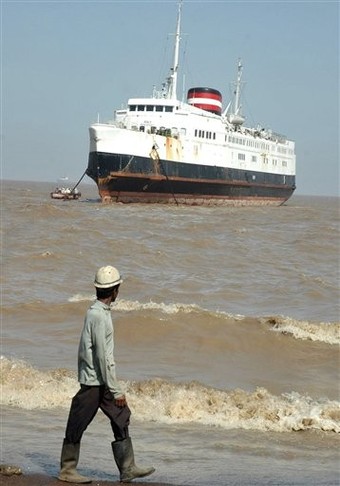Recall Platinum-II
"The ship with toxic material should be sent back".
The ministry of environment and forests has rightly called on the Gujarat government not to allow Platinum-II to be beached or dismantled at Alang. Platinum-II is a ship of US origin that was headed for dismantling at the Alang shipyard. It had been permitted to do so earlier by the Gujarat government based on false documents presented by the ship’s owners. Environmental activists had protested that decision, alleging that the ship was contaminated with toxic polychlorinated biphenyls (PCBs) and asbestos-containing material. This prompted the environment ministry to order a probe, which has now revealed that the ship is indeed toxic. Platinum-II should have been detoxified at its port of origin in the US. It was not. It was allowed to leave American shores in February 2008.
Nothing was done to stop it. Poor inter-agency co-ordination in the US was blamed for the ship slipping out for scrapping. This is a flimsy excuse. The US did subsequently impose a fine on Platinum-II’s owners but did not recall the ship. Now that the investigation has revealed the ship’s toxicity, the Indian government must send it back. Decontaminating Platinum-II is the US’ responsibility, not India’s.
Those who will benefit financially from Platinum-II’s scrapping at Alang can be expected to find loopholes in Indian laws to bring in the ship. This must not be allowed.
Platinum-II’s scrapping might provide jobs, but this comes at a huge cost — the health and safety of thousands of workers. It is likely that some will push to ensure that the ship be allowed for scrapping the way another highly toxic ship, Blue Lady, was in 2006, when the supreme court controversially okayed its scrapping at Alang. Did the government follow up on the SC order to protect workers’ health during Blue Lady’s dismantling? It doesn’t seem so. It is well known that Alang is not equipped to deal with material of high level of toxicity.
If India fails to stand up for the health of its citizens, more countries will try to get rid of their toxic vessels here, jeopardising the environment and the health of our workers. A 2007 study by the European Commission Studies said that 18 million tonnes of ships are likely to be scrapped in 2010. Many of these vessels will head to India. The government must remain vigilant and ensure that contaminated ships do not slip in.
http://www.deccanherald.com/content/35623/recall-platinum-ii.html
This group tracks the responses of shipping industry towards environmental and occupational health justice, highlights influence of shipping companies from EU, US and Japan etc. on IMO, its Marine Environment Protection Committee and South Asian governments. It is keen to restore beaches in India, Bangladesh and Pakistan to their pristine glory for the coming generations. For more information visit: www.toxicswatch.org
17/11/2009
Subscribe to:
Post Comments (Atom)










No comments:
Post a Comment